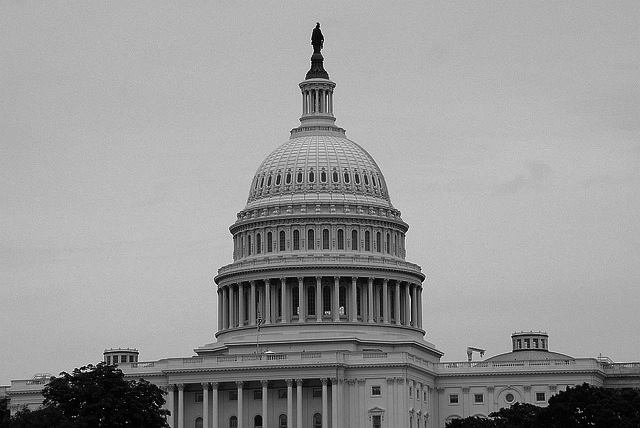One of the best written and most thought-provoking political books in recent decades was Jonathan Freedland’s Bring Home the Revolution. Essentially a paean of praise to American democracy, it skewered the knee-jerk anti-Americanism of so many of Freedland’s fellow leftists by comparing the state of British and US democracy and, remarkably for a book written by a Guardian columnist, pointing out how much we could learn from the US.
The originality of his argument was just that point: that we had something – anything – to learn from the US. That British democracy needed to learn lessons, however, was taken as a given, certainly on the left and on much of the right, too.
I am perhaps being unfair to Freedland to remind anyone of the book because, although its thesis was interesting and plausible back when it was published in 1998, anyone who came out with such an argument today would, rightly, be seen as away with the fairies.
“President Biden, seen in 2020 as the great hope of the centre, has spent his term pandering to many of the most extreme hard-left causes”
Last month’s midterms were effectively a choice between various Trump tribute acts and a series of hardcore leftwing ideologues. President Biden, seen in 2020 as the great hope of the centre, has spent his term pandering to many of the most extreme hard-left causes. In 2024, the contest will be between either Donald Trump or someone who manages to persuade Republican primary voters that they can have Trump without the baggage; and either a Joe Biden barely capable of saying a sentence coherently, or a candidate bought and paid for by the left ideologues of the party. D:Ream it will not be. Things will only get worse.
No one could seriously want to import such politics into the UK.
But while that might now be a near universally held sentiment, the idea that British politics and democracy are still in urgent need of rebuilding remains potent, especially on the left. Labour activists, for instance, appear to be increasingly fervent advocates of PR.
Take a step back, however, and this – along with other proposed changes to how our politics should operate – appears to be an answer in search of a question. Because, while we can all point to flaws, outrages or whatever we wish to call them – the existence of the House of Lords being the most obvious – it is important not to throw the baby out with the bathwater. When you look at the state of US politics, you see why we should be rather less downbeat about our own democracy.
Take the 2019 election. The choice was risible. You do not need me to explain why Labour was unfit for office with Jeremy Corbyn as leader. But while Boris Johnson won a landslide, it could hardly be called unexpected that he did not even last three years. His character flaws were merely the start of his unsuitability to be PM.
All of which was grist to the mill of those who look at our democracy and despair. For years it has been impossible to avoid their columns and books – and the 2019 choice made it almost as difficult to make the case that they are wrong, and that a choice between Johnson and Corbyn did not mean that we had slipped into an irreversible madness.
But now? Compare and contrast.
“Keir Starmer may not generate electricity, but the worst thing people accuse him of is being dull”
Labour’s worst result since the 1930s forced it to acknowledge reality. Keir Starmer may not generate electricity, but the worst thing people accuse him of is being dull. (Actually, that’s the second worst thing; a Labour MP once described him to me as, “Ed Miliband without the geek.”) The party’s Treasury team of Rachel Reeves and Pat McFadden are about as solid as they come. And many of those technically known as the ‘nutters’ are thus deserting Labour, perhaps the first useful thing they have done for the party.
As for the Tories: they had their own moment of madness, one which has almost certainly destroyed their chances of clinging on in 2024 (not to mention its impact on the economy). But what better advert could there be for the self-correcting tendencies of British democracy than the near-immediate political defenestration of Liz Truss and her replacement by the man who spent the summer warning of the chaos to come if her fairytale economics was implemented?
In other words, the boot is on the other foot. While the US system is inexorably pushing the two main parties to various extremes, ours has again – as it has always done – pushed them to the centre. While nutters on the left and right are increasingly dominant in the US, in the UK they are increasingly marginalised. The more one looks at the state of US politics, the more thankful one has to be about how British democracy works.
Originally published by CapX.co and reprinted here with permission.







